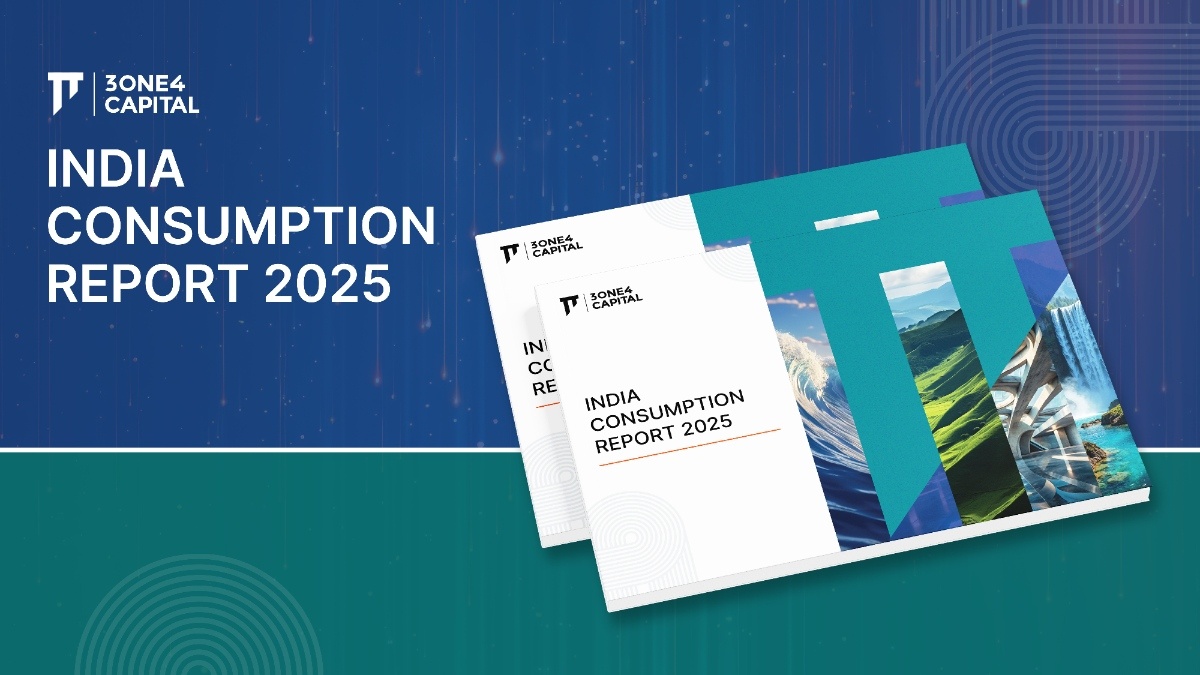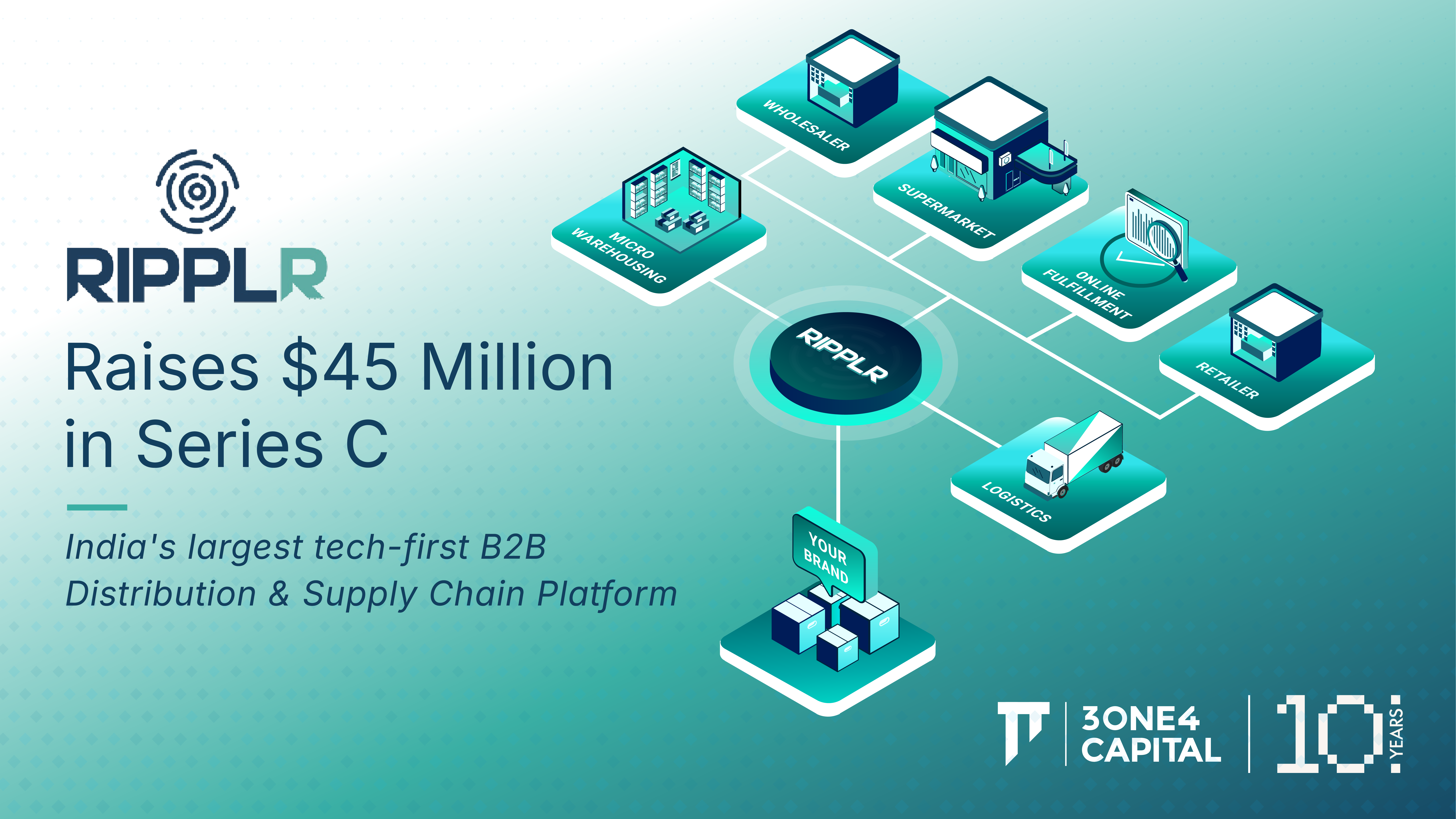
Winning in an Emerging India II: Data as a Moat
"Winning in an Emerging India" is a series dedicated to exploring frameworks, strategies, and best practices for businesses aiming to thrive in India's dynamic consumer landscape.
In our previous article, we examined the value versus volume framework to pinpoint compelling niches for success and to sidestep typical pitfalls. In this edition, we explore the use of data as a strategic asset, showing how it can serve as a competitive moat to build a scalable business.
Laying the Foundation through Data
We're frequently asked about the ideal timing to begin investing in data for a startup, and our response is unequivocal: from 'Day 1'. Although establishing a comprehensive data-first approach in the early stages demands significant effort and upfront investment, we advocate for founders to carefully consider the pivotal data points that will define their success and allocate resources towards tracking them from the outset. With the constant influx of new tools into the market, the actual cost of developing an early data infrastructure has notably decreased. The fundamental principle behind constructing a data stack revolves around three essential attributes: scalability, governance, and flexibility.
The next question is always, ‘Where do I begin?’ and our suggestion is to always start from your core business objective. Whether it’s acquiring new customers, retaining existing ones, improving overall customer satisfaction or unlocking efficiency, there’s always a metric that a business needs to obsess about before putting a data strategy in place. Aligning business objectives with key business metrics is critical for the success of a business. For instance, if the goal is to improve acquisition, then every data point from top of the funnel conversion to CAC is imperative to track.
Beyond concentrating on Profit & Loss (P&L) indicators such as Revenue, Cost of Goods Sold (COGS), margin profiles, and profit, it's essential for a company to cultivate a comprehensive understanding of its business through metrics that underpin the line items in its P&L. Accurately understanding and validating consumer data stands as a crucial factor for any business aiming to meet the demands of its end-consumers effectively. Establishing processes and a company culture that prioritises data-driven decisions is fundamental to securing a competitive edge in the current market landscape.
At 3one4, we have developed a foundational operating metrics cheat sheet designed to be adaptable and expandable based on your company's growth stage:

Building a Modern Data Stack
At scale, every D2C company should aim to be a software-first innovator to better collect, analyse, and leverage data. At 3one4, we are excited about brands that are built obsessively on top of data-led insights from day one.
At the onset, we encourage founders to prioritize business objectives across critical use cases such as revenue management, inventory management, sales and sales analytics, customer data analytics, personalisation, supply chain management, and distribution management. Prioritization of key business objectives is critical in allocating investment across different tools and resources.
Over the last few months, we have been working closely with operators, founders, and investors to identify the most commonly used tools across a consumer startup’s journey. We are excited to share a suggestive list of software and tools that you can use to ramp up your business’s journey through data-led insights.

Ripplr - Leveraging Data to Build Tech-enabled Distribution
Ripplr, a 3one4 Capital portfolio company, is building the largest tech-enabled distribution network in India. In an industry where brands often lack visibility into their sales channels, Ripplr's technology revolutionizes operations by enabling AI-driven predictions and decisions, optimising loading and routing processes, and providing real-time tracking of inventory and purchasing patterns. It deploys predictive analytics to manage demand and inventory for both brands and retailers apart from providing insights at a micro-market level. Ripplr works closely with emerging brands, aiding them in strengthening their offline presence and launching new products. This involves identifying consumer hotspots where demand for their products is high and targeting markets where consumer needs remain unmet.
Today, Ripplr is the distribution powerhouse for the top 20 brands in the country. Ripplr’s data-first engine manages data for over top 8000 SKUs in India capturing almost 85% of India’s FMCG consumption and processing over 4M orders annually. Their capability allows brands to not only unlock retailers at a pan-India level but also understand consumer trends that are perpetually evolving. Positioned as a unique engine at the intersection of data and decision-making, Ripplr's capabilities serve as a testament to the transformative power of data-driven strategies. The platform processes over 1M data points daily in real time to crunch an exhaustive set of SLA and prescriptive data ensuring system transparency and financial accuracy. Ripplr’s engine also reconciles over 4M invoices every year out of which 2.4M are auto-verified by the system as soon as money hits the bank.
At 3one4, we are excited about Ripplr’s potential to disrupt a traditional business through a tech-enabled data-first engine that empowers brands to leverage consumer insights at a granular level.
Conclusion
The key to building a successful consumer business is not only a function of solving for healthy financial metrics but also consistently leveraging consumer and supply chain data to drive capital efficiencies and repeatable scaleable practices. Investing and nurturing data-first thinking into the fabric of a company delivers consistent superior performance.
DISCLAIMER
The views expressed herein are those of the author as of the publication date and are subject to change without notice. Neither the author nor any of the entities under the 3one4 Capital Group have any obligation to update the content. This publications are for informational and educational purposes only and should not be construed as providing any advisory service (including financial, regulatory, or legal). It does not constitute an offer to sell or a solicitation to buy any securities or related financial instruments in any jurisdiction. Readers should perform their own due diligence and consult with relevant advisors before taking any decisions. Any reliance on the information herein is at the reader's own risk, and 3one4 Capital Group assumes no liability for any such reliance.Certain information is based on third-party sources believed to be reliable, but neither the author nor 3one4 Capital Group guarantees its accuracy, recency or completeness. There has been no independent verification of such information or the assumptions on which such information is based, unless expressly mentioned otherwise. References to specific companies, securities, or investment strategies are not endorsements. Unauthorized reproduction, distribution, or use of this document, in whole or in part, is prohibited without prior written consent from the author and/or the 3one4 Capital Group.


.webp)












